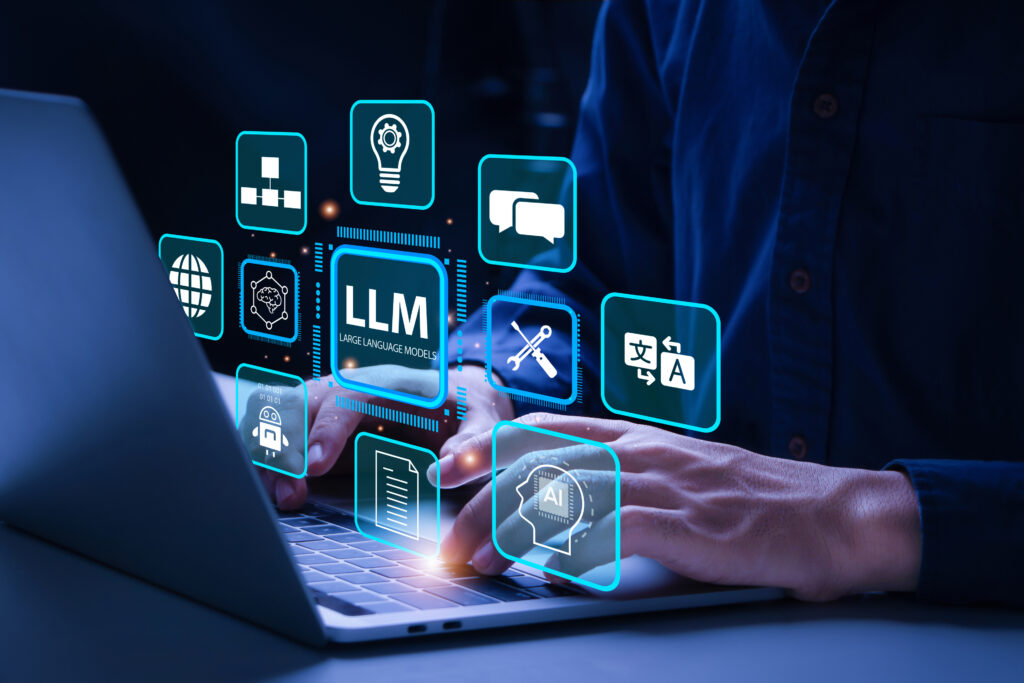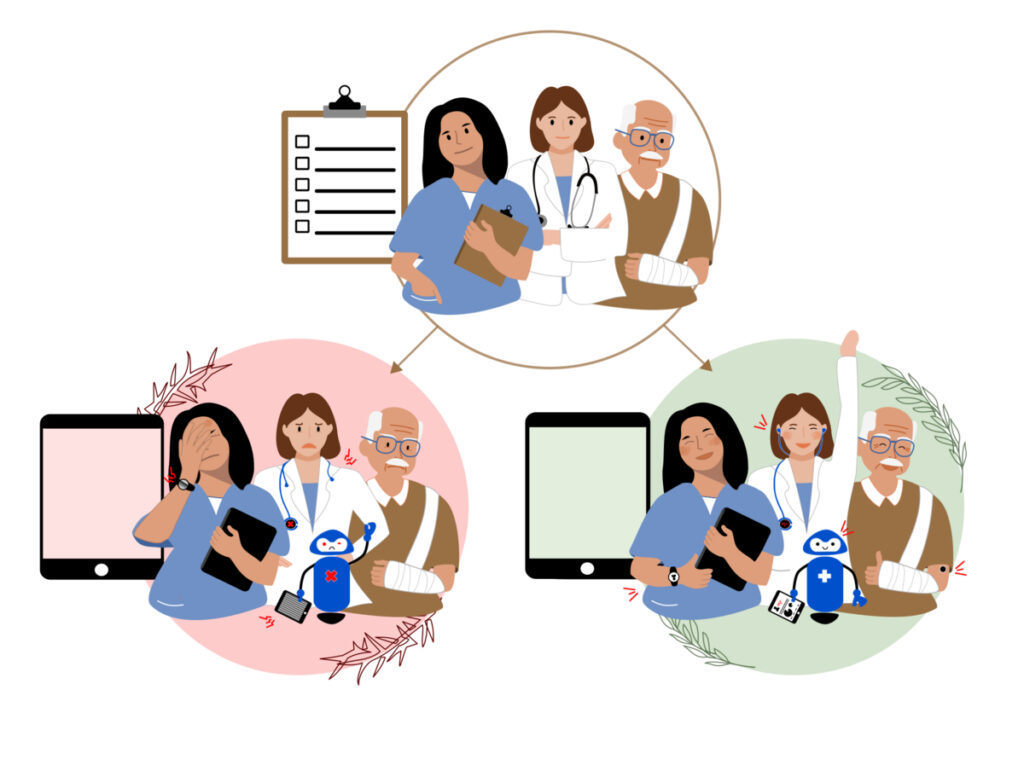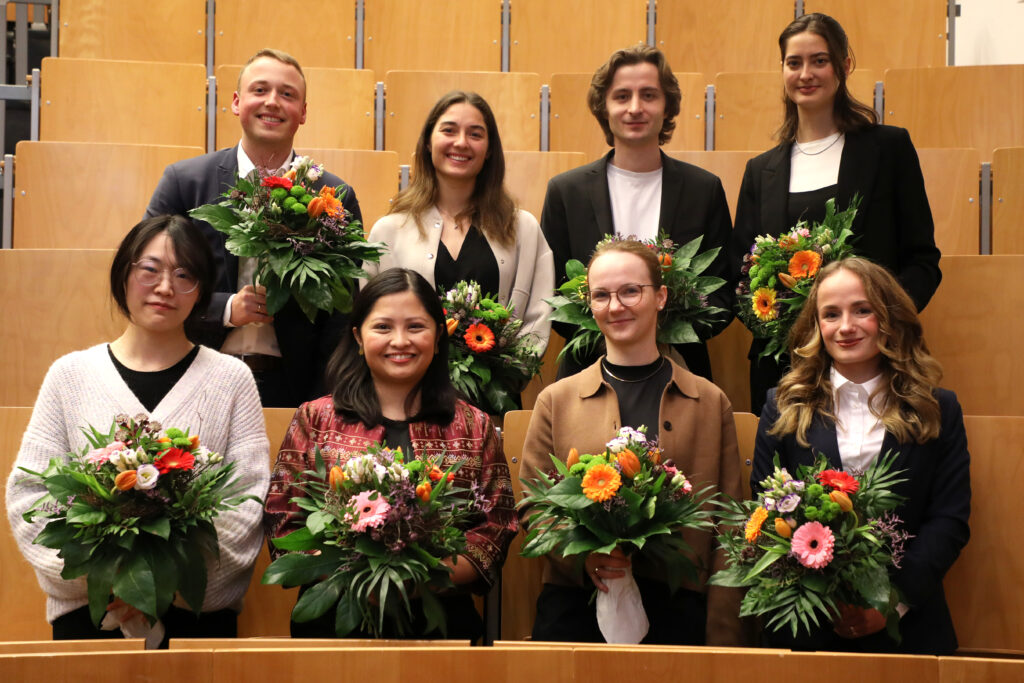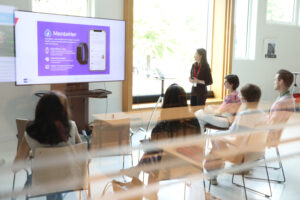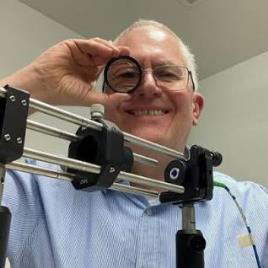AI-generated synthetic data for cancer research and clinical trials
Dresden Science Night 2025
Once again, Dresden Science Night brought together science enthusiasts from the city and beyond on Friday, June 20, 2025. Among our highlights this year were a Science Slam, jointly organized by the EKFZ for Digital Health and DKFZ Patient Advisory Board Dresden, and a special visit to Dr. Moritz Herzog’s HybridEcho team – selected as one of only a few stops on this year’s exclusive Science Night tour through Dresden.
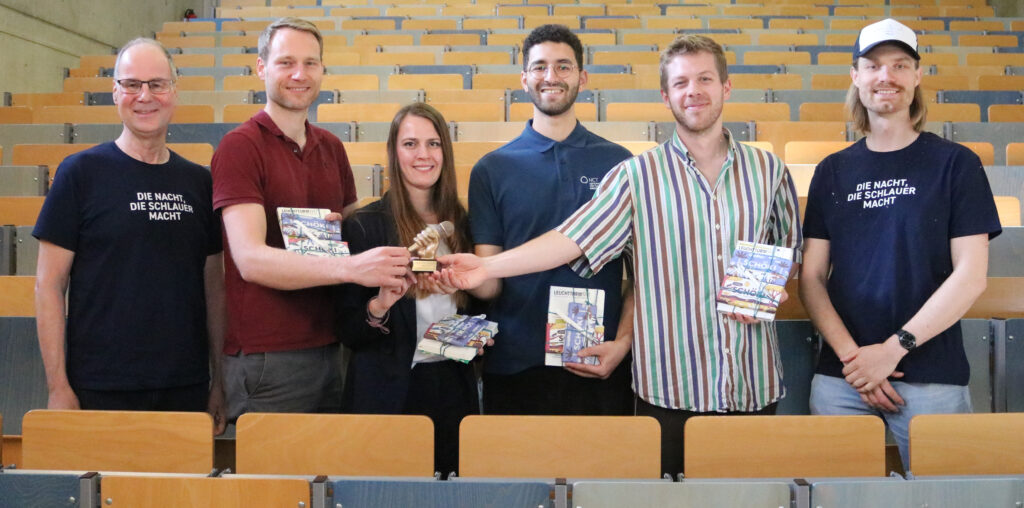
Science Slam: Making cancer research accessible in a fun way
The auditorium was well filled as Marco Gustav, German Science Slam Vice Champion 2023 and PhD student in the KatherLab, took stage alongside Christoph Schmitt, member of the DKFZ Patient Advisory Board. Together, they welcomed a curious audience to an evening of inspiring and entertaining science. Four young researchers from EKFZ for Digital Health, Dresden University Hospital, NCT – National Center for Tumor Diseases and the German Cancer Research Center (DKFZ) presented their projects in short, creative and engaging talks – each just within 10 minutes. Their slams explored a range of topics from AI-driven cancer risk detection and microrobotics to genetic predisposition, and autonomous surgical systems.
After the talks, the audience cast their votes to choose the evening’s winner. However, they simply could not decide. Hence, congratulations to all four participants for your exceptional performances!
To conclude the event, Christoph Schmitt shared his perspective on complementary therapies in cancer treatment. We are grateful to Marco Gustav and Christoph Schmitt for their initiative in organizing this Science Slam, which proved that cutting-edge research can be made understandable and enjoyable for a broad audience.
Dr. Jan Clusmann
Alternative medicine: Running trough forests to detect cancer
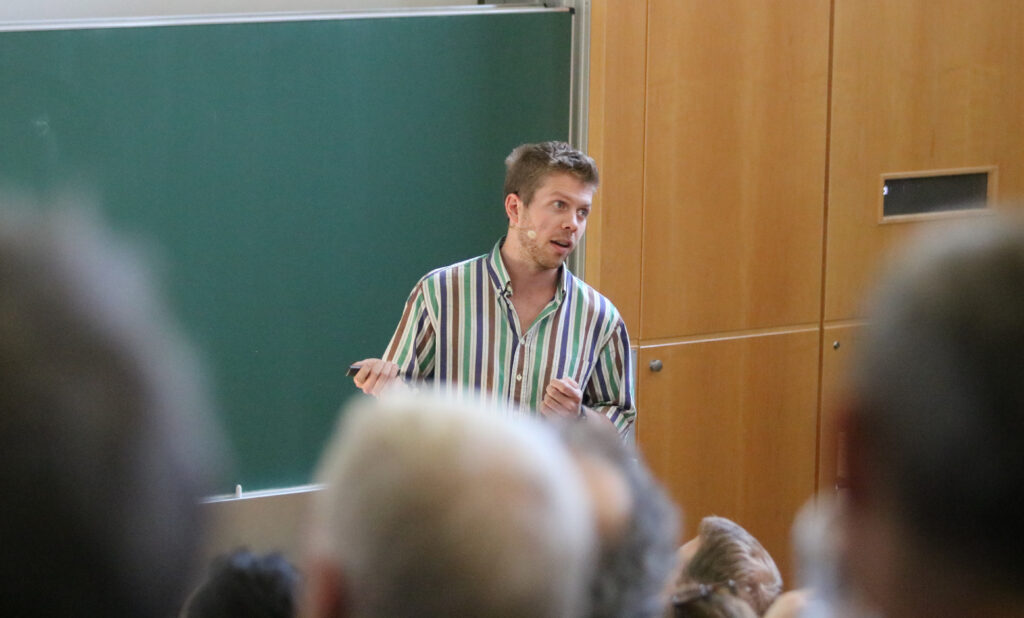
Jan Clusmann (EKFZ for Digital Health) applies machine learning to identify liver cancer risks and asked why prevention is often harder than cure. Using comparisons with alcohol, smoking, and our own genes, he invited the audience to reassess the dangers to the liver.
Ann-Sophia Müller
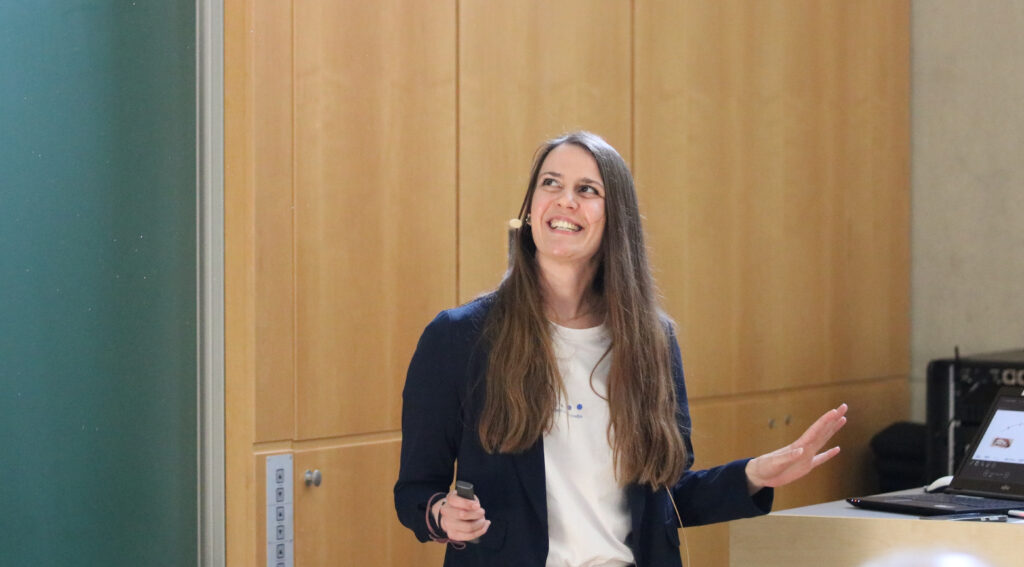
Microrobots will soon navigate the human body to deliver medication precisely or to collect tissue samples with great accuracy. Ann-Sophia Müller (DKFZ Dresden) explained how these tiny machines are moved and localized.
Dr. Arne Jahn
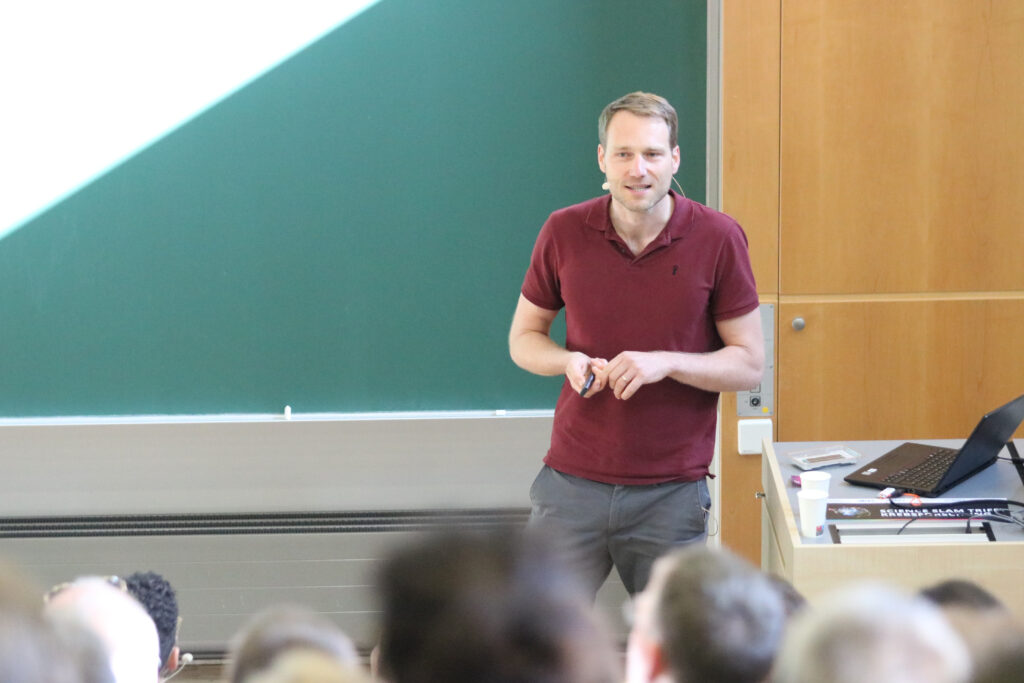
Arne Jahn (University Hospital and NCT Dresden) explained how a hereditary cancer risk can develop into an actual disease and how personalized treatment approaches are to be developed for this risk group in the future.
Rayan Younis
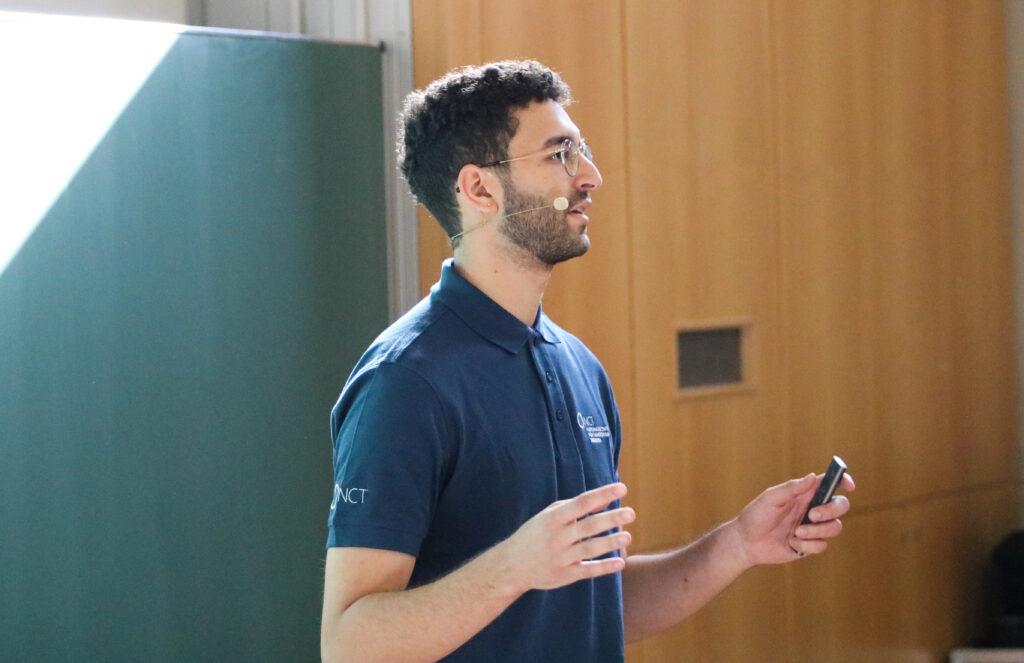
Today’s surgical robots still need human hands – but what if they could operate autonomously? Rayan Younis (University Hospital Dresden, VTG, CeTI) explores how AI might control surgical procedures in the future and asked the question: Would you trust a robot to perform your surgery?
HybridEcho: Spotlight on the Future of Medical Ultrasound
Science Night Tour. This event invited several special guests including Jan Pratzka, mayor for Economic Affairs, Digital Affairs, Human Resources and Security, to take a closer look at several research activities across Dresden. The delegation of around 30 people visited the HybridEchoresearch group of Dr. Moritz Herzog at their booth at NCT Dresden. After a short introduction about the EKFZ for Digital Health and its research by Jakob N. Kather – Professor of Clinical AI – the visitors gained fascinating insights into innovations in medical ultrasound. In addition, they had the opportunity to try out the technology themselves and experience firsthand the need for improved image quality and more compact devices. The research team had prepared basins filled with gelatine, in which they embedded an egg, a lime and a banana. Visitors were given the opportunity to examine and puncture these items themselves using ultrasound. Afterwards, they got a short tour through the HybridEcho lab and had the chance to ask even more questions about their research. It was an exciting, valuable and enjoyable experience for both our researchers and our visitors.
A second stop of the exclusive tour was at COSMO Science Forum where the guests could experience exhibits from the last exhibition “Dr. Zukunft – Medical Technology from Dresden Science”. Part of it was also an interactive exhibit explaining data security and connected medical devices. The research is part of SEMECO, which is funded by the BMFTR through their Clusters4Future initiative.
We are sincerely thankful for the opportunity to present our research to a broad audience and offer a glimpse into the future of medical technologies and healthcare innovations.
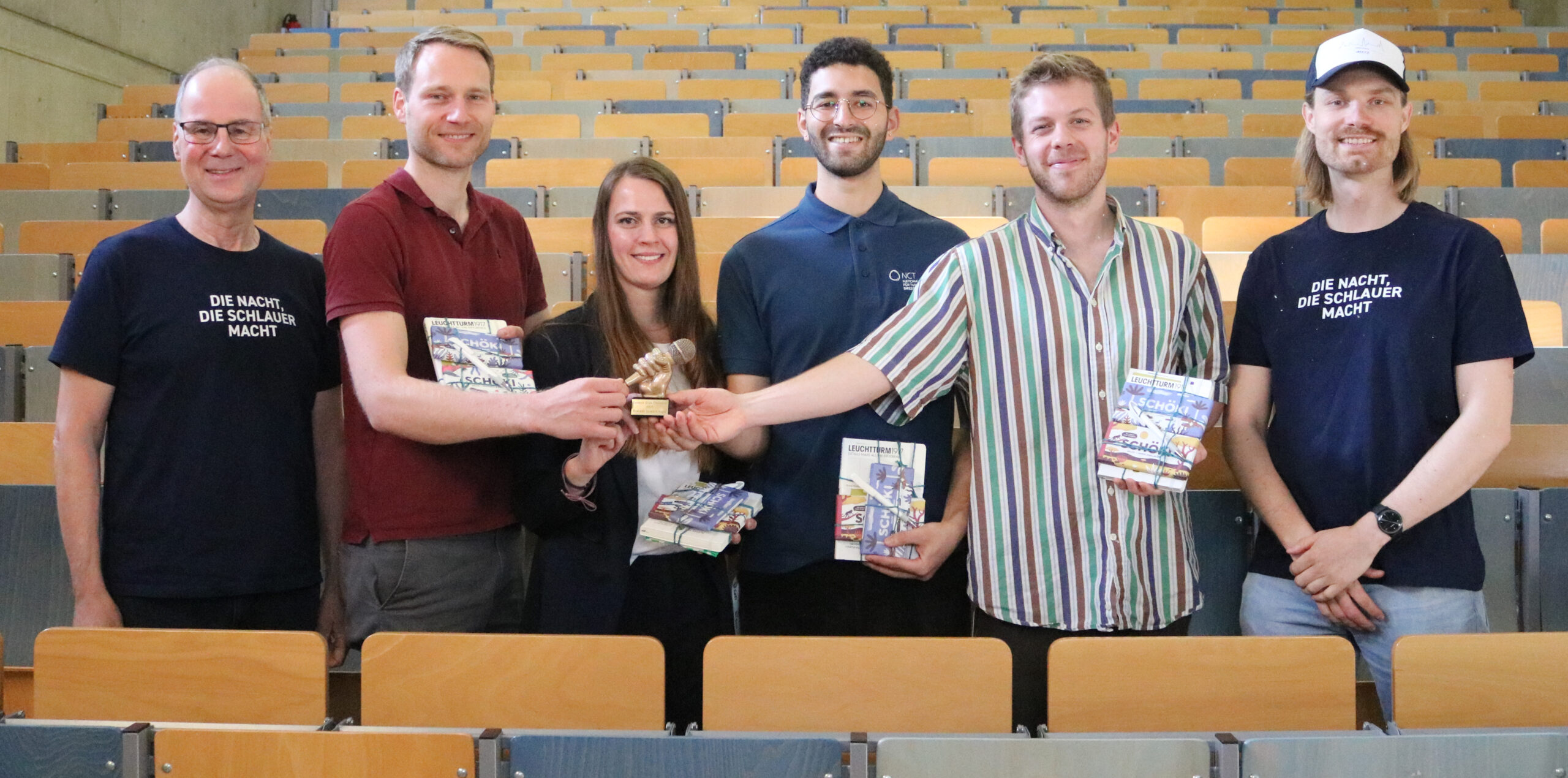
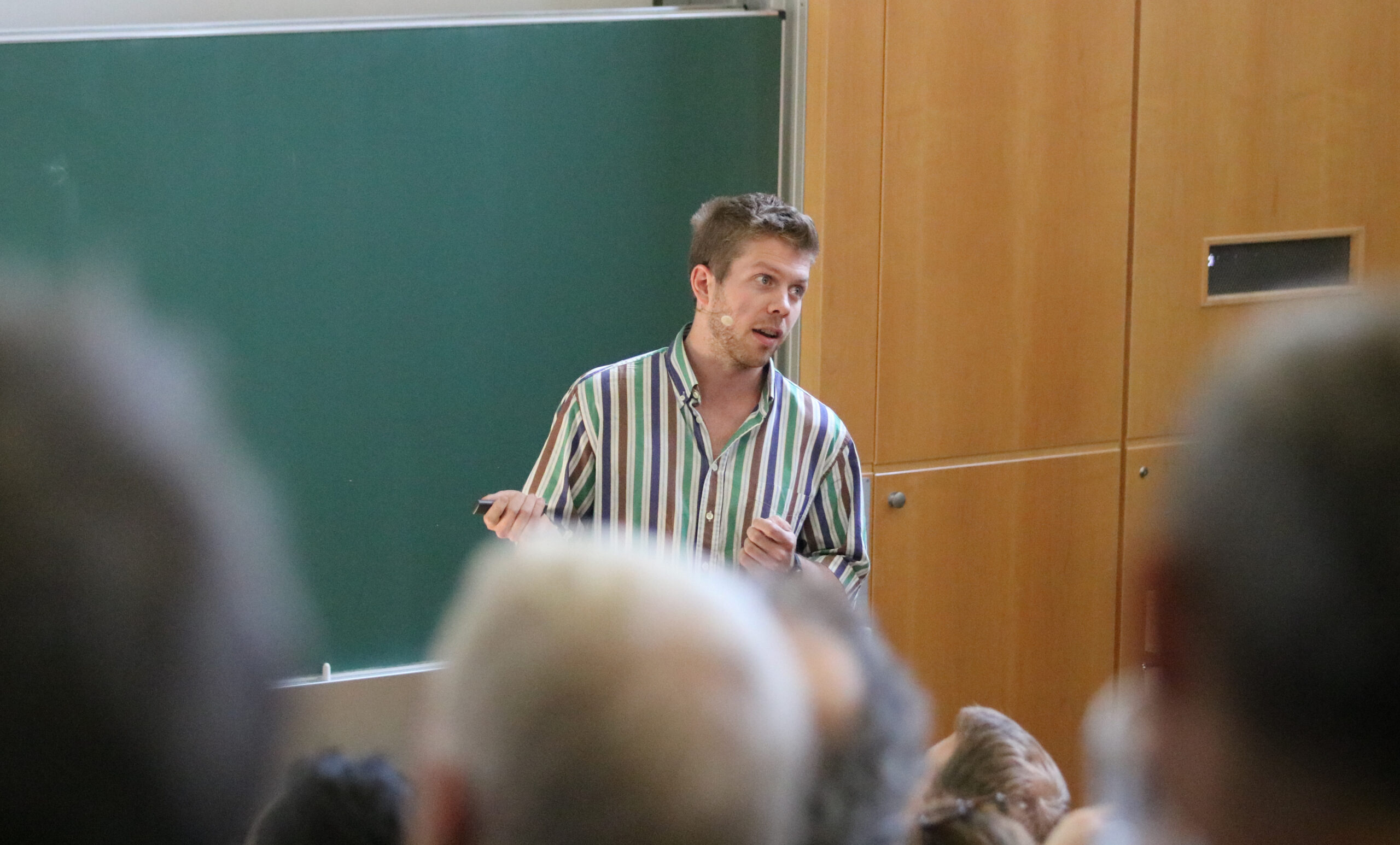
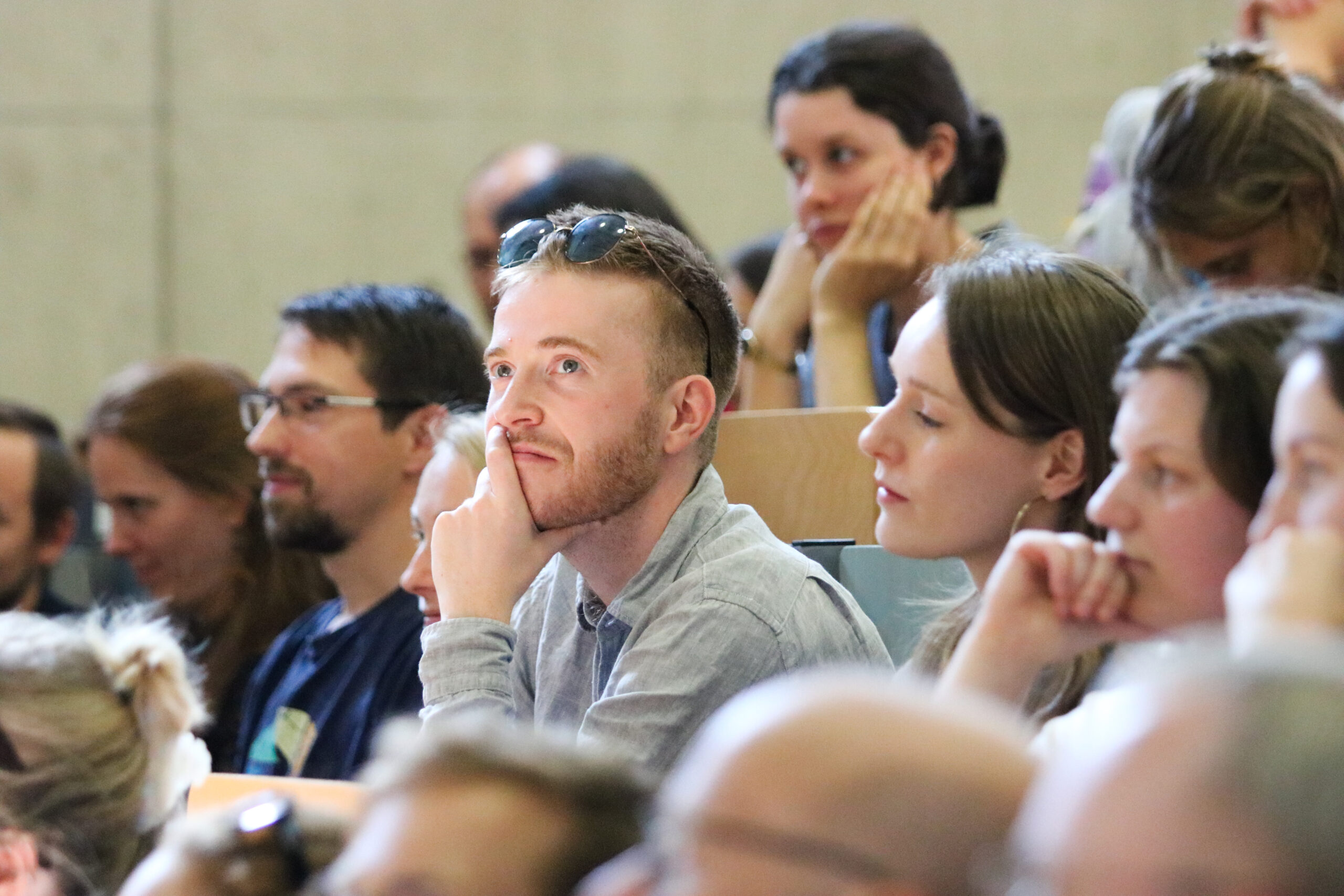
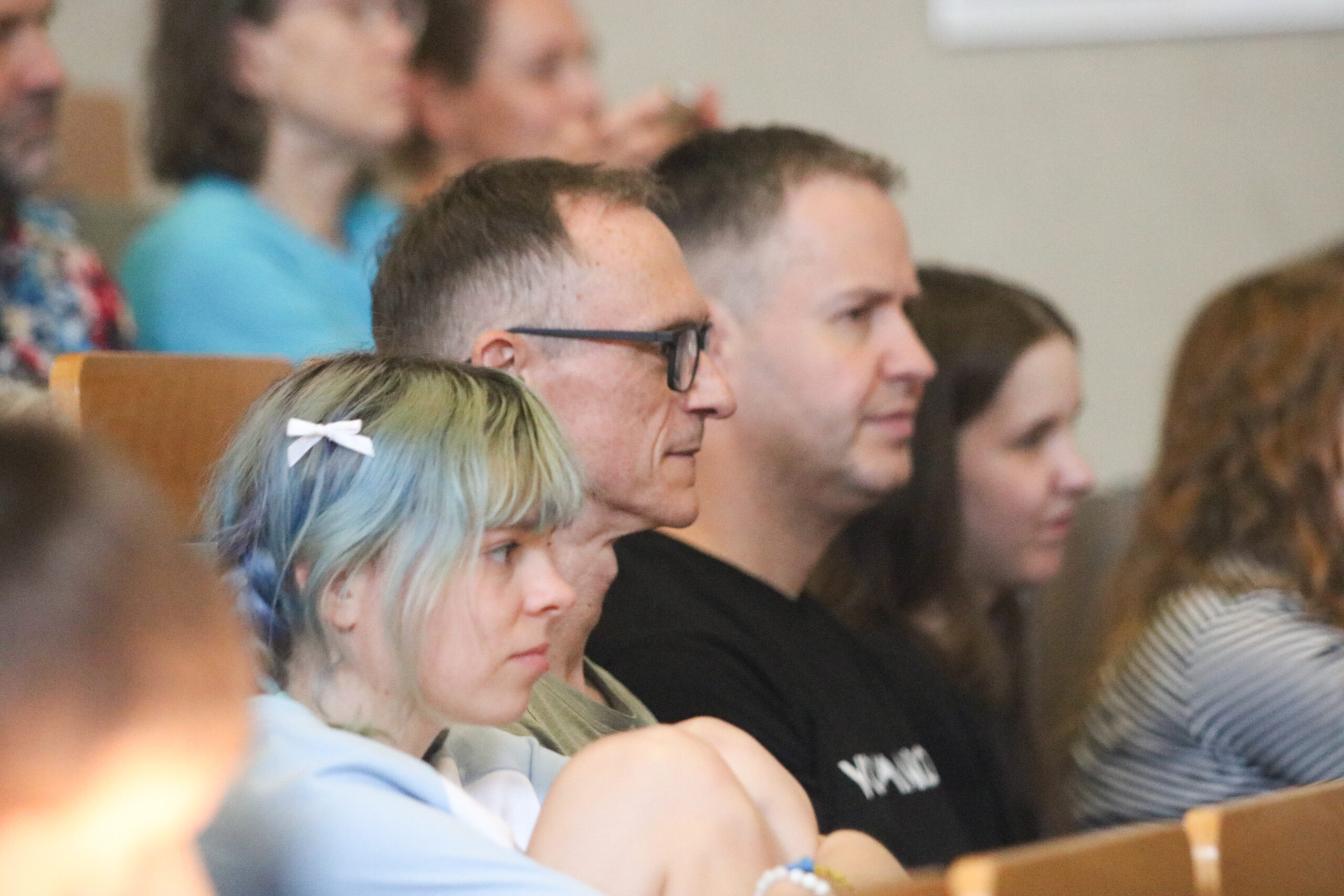
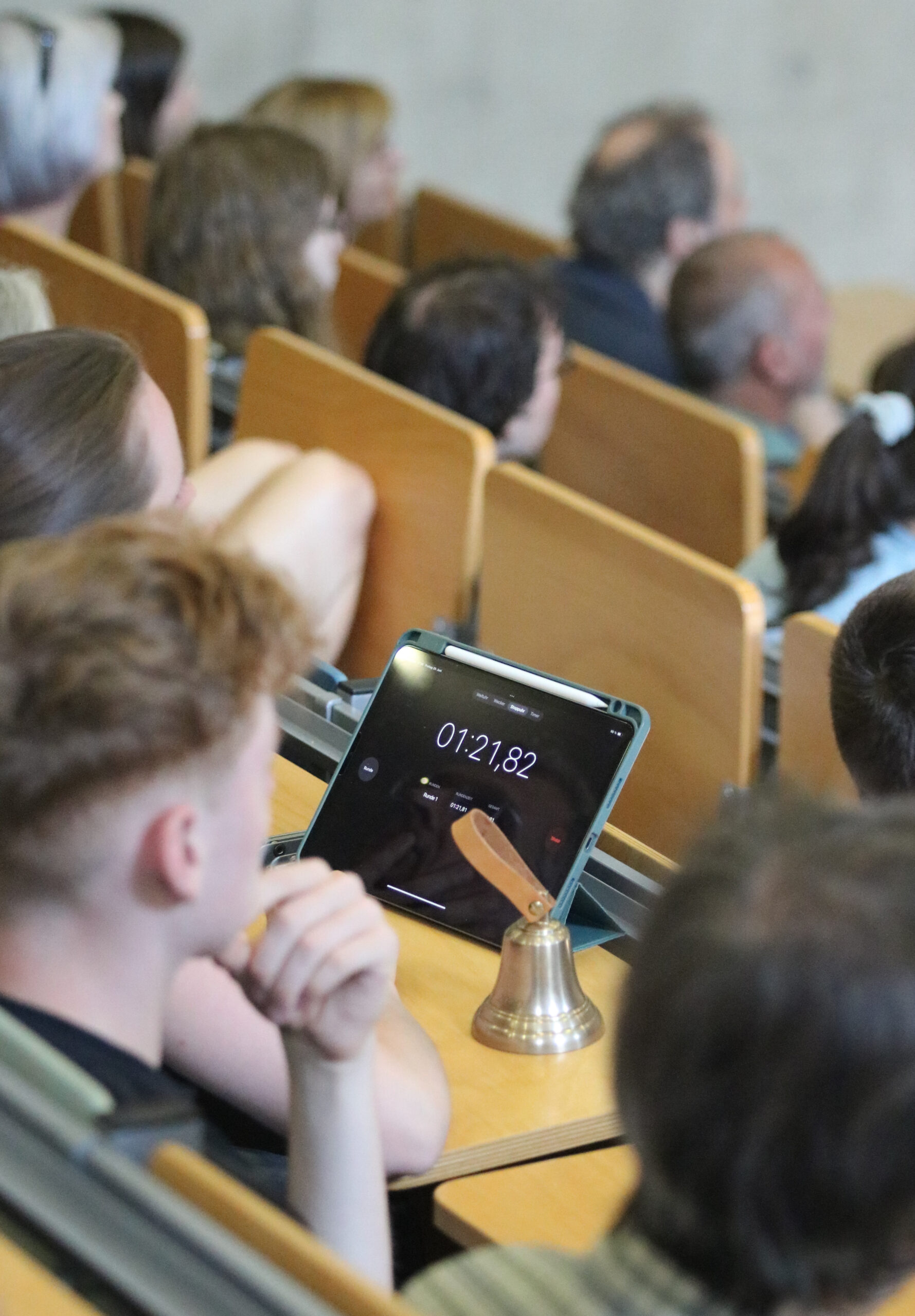
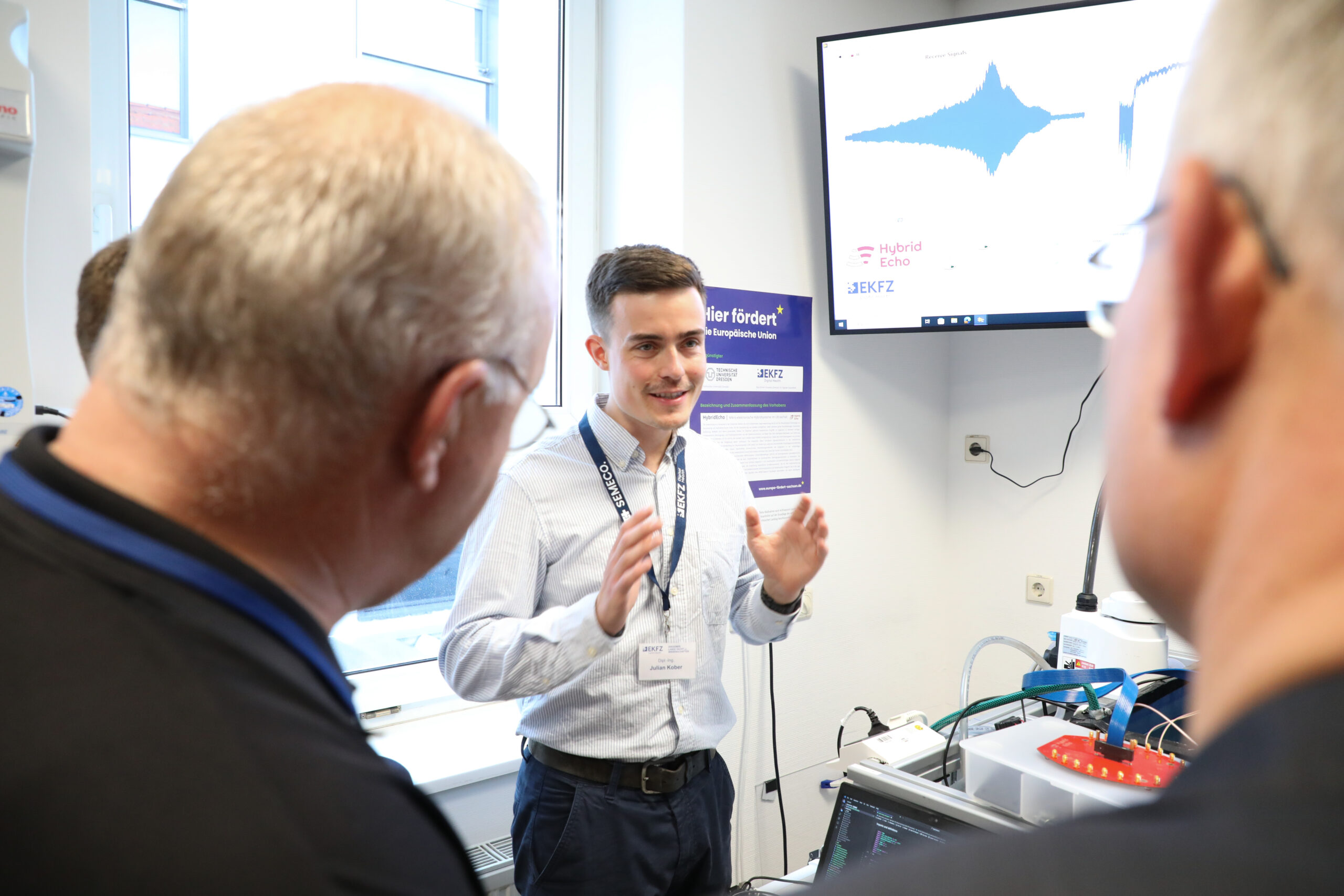
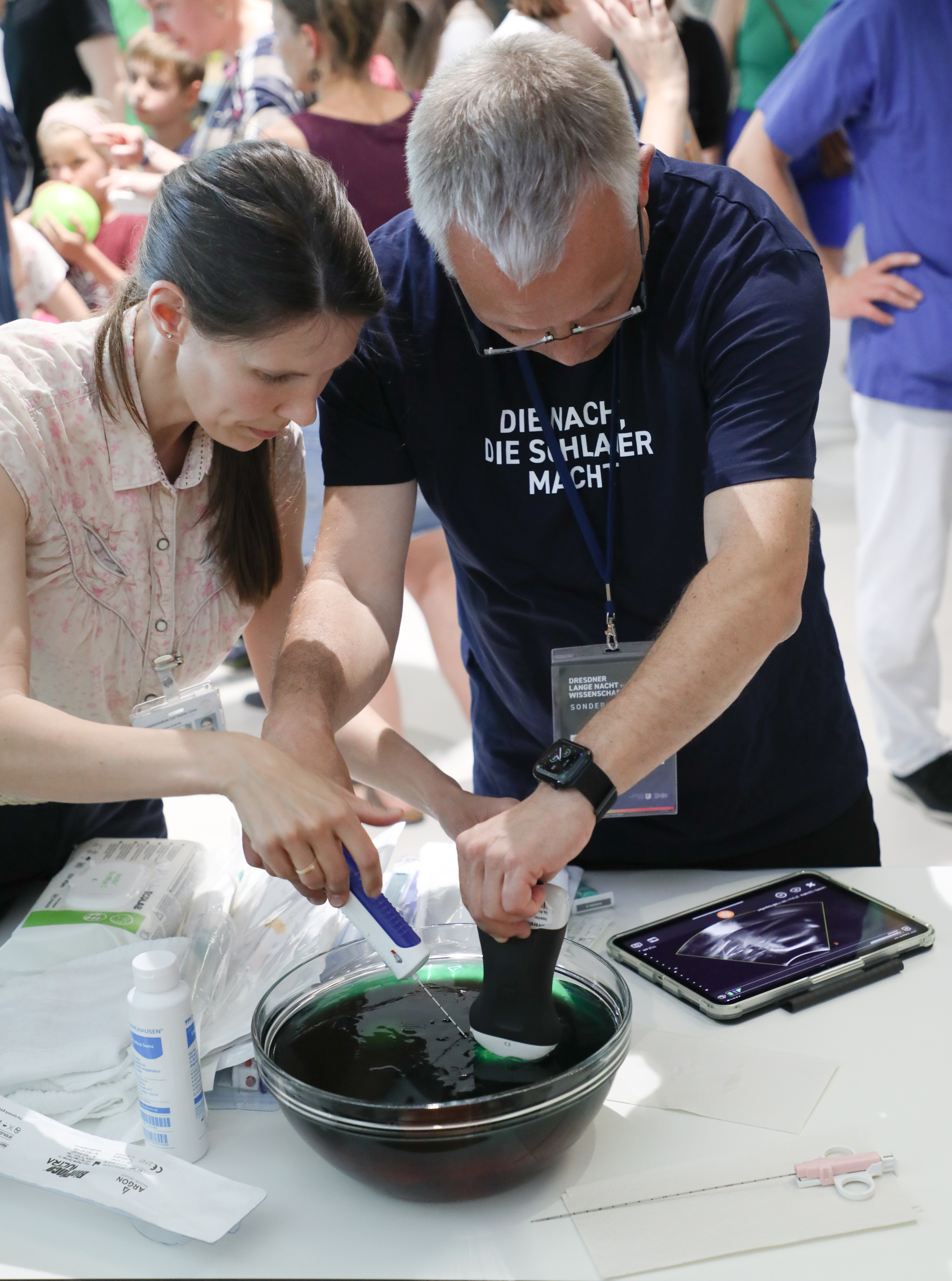
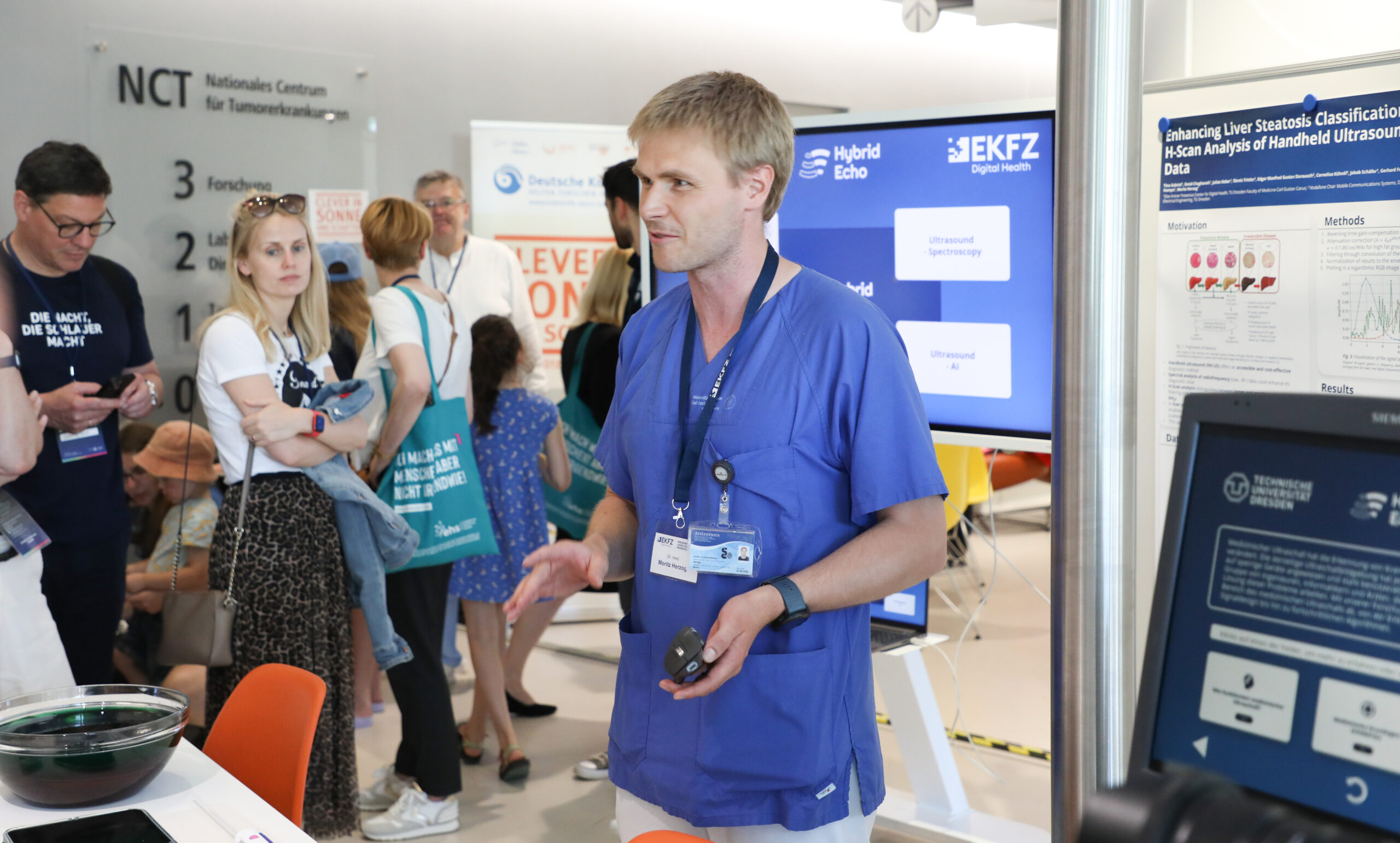
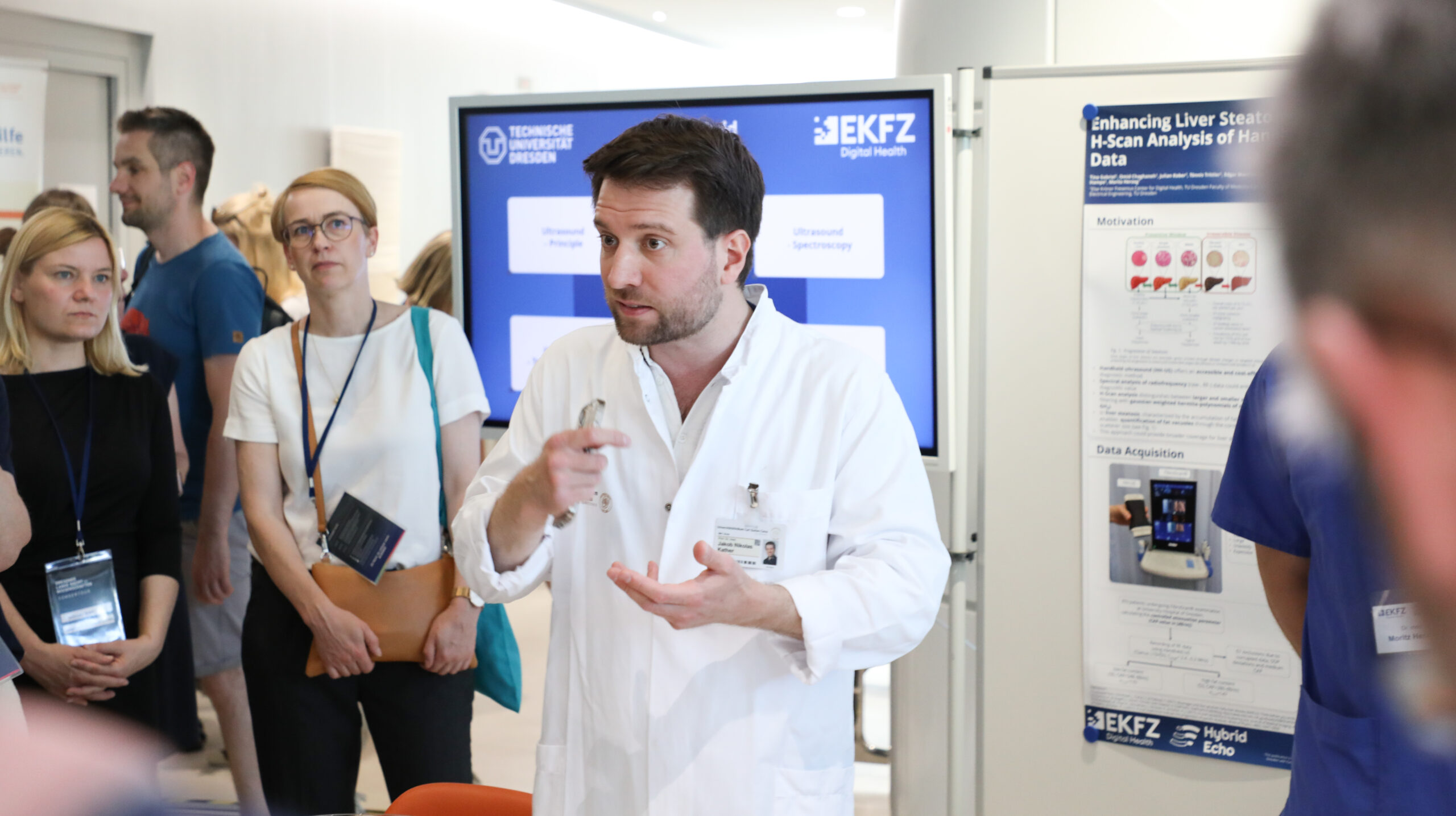
More News
Carl Gustav Carus Awards for three EKFZ affiliated young researchers


